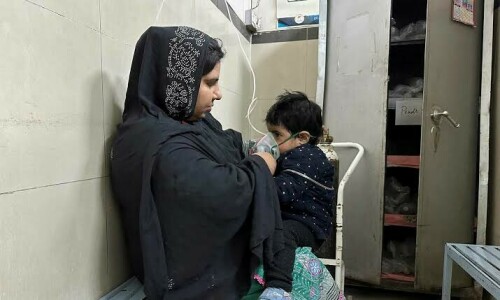LAHORE: The Lahore High Court said on Friday that it would also consider possible physiological effects on society and judges holding trials in cases of Model Town incident before deciding whether report of the judicial inquiry into the 2014 killings should be made public or not.
A three-judge full bench’s member, Justice Qazi Muhammad Amin Ahmad, told this to Punjab government’s counsel Khwaja Harris before it reserved judgment on an appeal moved by the home secretary challenging an order for publication of the inquiry report known as “Justice Najafi Report”.
Justice Abid Aziz Sheikh headed the bench while Justice Syed Shahbaz Ali Rizvi was the third member of it.
Mr Harris had appeared before the bench to submit his rebuttal to the arguments advanced by lawyers of heirs of killed and injured in the Model Town incident who defended the decision delivered by single judge-Justice Syed Mazahar Ali Akbar Naqvi for the release of the inquiry report, which the government had been withholding for three years. Barrister Syed Ali Zafar, Advocate Khwaja Tariq Rahim and Advocate Azhar Siddique were their counsel.
In his counter-arguments, the government’s counsel said the fundamental rights had been guaranteed subject to reasonable restriction in the law. He said a fundamental right could not be provided if there was a threat to public/social order and the national security.
Referring to settled principles, he said though the inquiry report was not admissible evidence its release would surely lead to media-trial jeopardizing the right to fair-trial of a number of people. He said the state was responsible to enforce all the rights but without comprising rights of others.
Advocate Harris further said release of the report would open trial in media parallel to proceedings pending before courts. He pointed out that trial was in progress in two FIRs of the incident with 33 witnesses testified so far.
Previously, in his main arguments, the government’s counsel had tried to convince the judges that the Model Town inquiry report had become a “dead document” as purpose for which it was conducted stood exhausted. He said the government had the privilege whether to release a judicial inquiry report or not.
In the case, the government had presented in-camera the report before the judges of the full bench for their personal analysis.
Justice Naqvi had in his Sept 21 impugned order ruled, “The inquiry report is a public document being outcome of judicial proceedings, therefore, in the public interest, it is directed that the same be publicized forthwith.
He also observed that outcome of an inquiry held on account of public interest must be brought in the notice of the public at large because in the democratic system the will of the public was of unique importance. “And the high court is under bounden duty to not only safeguard rather enforce the fundamental rights of citizens,” Justice Naqvi said in the decision given on the petition moved by heirs of victims.
Published in Dawn, November 25th, 2017











































Dear visitor, the comments section is undergoing an overhaul and will return soon.